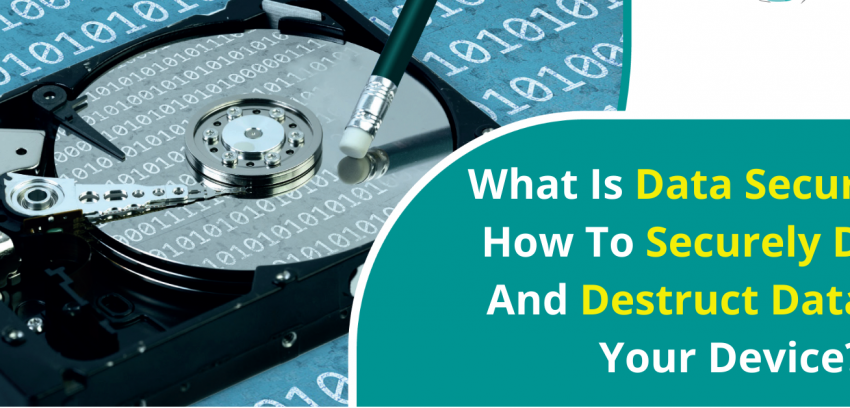TABLE OF CONTENTS
- Understanding E-Waste: What It Is and Why It Matters?
- The Current E-Waste Management in India
- Top E-Waste Management Services in India: Who’s Leading the Change?
- How E-Waste Management Services Work: Collection to Recycling Process
- Indian Government Policies and E-Waste Laws
- Benefits of Choosing Certified E-Waste Management Services
- How Businesses and Individuals Can Contribute to Responsible E-Waste Disposal
- Conclusion
- FAQs
Electronic devices have become an integral part of human lives and are surrounded by machines like refrigerators, mobiles, and laptops. These electronic devices make human lives convenient, but pose a significant issue, which is e-waste. In India, e-waste management services have become vital in the reduction of environmental impact, recovery of resources, and safe disposal.
In this blog, we will unravel how an e-waste management company helps in properly disposing of e-waste and make a greener future.
Understanding E-Waste: What It Is and Why It Matters?
E-Waste means discarded electronic and electric equipment which completed its useful life. In addition to environmental risks, the disposal of e-waste inappropriately diminishes precious metals such as copper, gold, silver, palladium, and rare earth metals. The reuse of such resources through effective recycling helps to achieve the objectives of the circular economy and minimizes reliance on mining and raw materials extraction.
The responsible management and E-waste recycling solutions are important for sustainability in the long run. The process of informal recycling by people does not require skills that subject individuals to hazardous chemicals.
In addition to this, useful materials are wasted rather than being recycled to produce more products. This is the reason why a certified and structured e-waste management service in India is important.
The Current E-Waste Management in India
India is one of the largest e-waste producers in the world. As the level of digitalization increases, purchasing power rises, and product life cycles are becoming shorter, the amount of disposed electronics is increasing annually. The current scenario involves some major areas such as:
A Massive Informal Recycling Division
Almost 90% of e-waste is disposed of by informal workers through unsafe practices such as open burning, acid baths, and manual dismantling without protective equipment.
Raising Corporate Accountability
The take-back schemes are being adopted, and certified E-waste management companies in India are collaborating with many large brands to comply with the extended producer responsibility (EPR) regulations.
Lack of Proper Infrastructure
The situation is still getting better, but various cities do not have the drop-off points or collection centers.
Rising Imports and Industrial Waste
IT company changes and international product flows increase the load.
Nevertheless, India has experienced tremendous gains over the last few years due to the implementation of extended producer responsibility (EPR), certification schemes, and the emergence of responsible recycling companies. These are slowly transforming e-waste management services into a safer and regulated industry.
Top E-Waste Management Services in India: Who’s Leading the Change?
There are a number of certified e-Waste Management Company in Bangalore striving towards having an efficient and sustainable e-waste ecosystem. These agencies deal with electronic waste collection, segregation, recycling, refurbishment, and safe disposal. Most of the service providers in the country, but the best E-waste management Company includes:
- Companies that are characterized by large-scale e-waste processing capacity and compliance standards.
- Planting of recycling centers with modern technological equipment to reclaim precious metals and reusable products.
- Companies collaborate with the corporate and consumers, and the government, to encourage responsible disposal.
- A Service provider with nationwide pickup services, data destruction services, and recycling that is environmentally friendly.
These companies can contribute to the reuse of the recovered materials in the supply chain, not only in order to reduce the load on landfills, but also as a part of the circular economy.
How E-Waste Management Services Work: Collection to Recycling Process
A systematic and environmentally-friendly working process guides the certified e-Waste Management Company in Hyderabad to provide quality handling and recycling of electronic waste. The process usually involves:

1. Collection and Pickup
E-wastes are being picked up at the household level, corporate offices, industries, and retail stores. The process is accessible to everyone with the assistance of doorstep pickup, drop-off centers, and collection drives.
2. Segregation and Sorting
The gathered waste is divided into categories such as IT equipment, consumer electronics, household appliances, and batteries. Risky and non-dangerous elements are segregated in order to be safely handled.
3. Dismantling
Devices to remove reusable electronics like printed circuit boards, screens, motors, and wiring. This step is necessary to define valuable materials.
4. Recycling
The mechanical and chemical processes are used to recover metals, plastics, and glass. Its recycling practices are environmental friendly, i.e., the impact on the environment is minimal.
5. Data Destruction
In corporate customers, privacy and adherence to data security standards are guaranteed by secure data erasure or physical destruction of storage devices.
6. Final Disposal
The hazardous materials that cannot be recycled are disposed of via authorized treatment, storage facilities, and disposal facilities to ensure safe containment.
Indian Government Policies and E-Waste Laws
The Indian government imposes various restrictions to address the e-waste challenges.
- Obligatory approval of recyclers and dismantlers to provide safe and standard operations.
- Tough disposal laws of hazardous waste materials.
- Consumer obligation to deliver e-waste to authorized collection facilities.
- Online methods of tracking and reporting to enhance the monitoring of transparency and compliance.
These regulations promote recycling infrastructure development throughout the nation that is environmentally friendly and encourages practices that are safe.
Benefits of Choosing Certified E-Waste Management Services
There are many benefits of cooperating with authorized e-waste recyclers:
Environmental Protection
Certified E-waste management services in Kolkata apply safe and scientific approaches, which eliminate toxic elements being released to the environment.
Resource Recovery
The extraction of raw resources is minimized, as precious metals and other valuable materials are reused and recovered.
Data Security
Professional E-waste management services in Mumbai guarantee the destruction of data in order to keep confidential information safe for individuals and organizations.
Legal Compliance
By engaging qualified E-waste management service providers, businesses adhere to EPR guidelines and escape punishment.
Health and Safety
Certified E-waste management services in Pune prevent the exposure of workers to dangerous substances by bypassing the informal sector with garbage.
How Businesses and Individuals Can Contribute to Responsible E-Waste Disposal
Both users and companies play a crucial role in minimizing the environmental e-waste burden.
For Businesses
- E-waste collection systems should be established inside.
- Outsource bulk disposal to licensed recyclers.
- Provide safe data destruction of old IT assets.
- Educate workers in good waste management.
For Individuals
- Do not dispose of electronics in normal garbage.
- Dispose of using certified drop-off centers.
- Give or sell a functional device, rather than disposing of it.
- Take part in community gatherings.
- Select brands that meet EPR standards and promote recycling.
- Minor activities have massive effects on the environment when combined.
Conclusion
India’s e-waste management services are transforming the future of environmental sustainability by providing scientific, compliant, and environmentally friendly ways of disposing of electronic waste. As awareness builds, government policy is strengthened and more responsible senders engage in the recycling process, India is slowly advancing into a more resource-efficient, cleaner system. With responsible practices being ever more adopted by businesses and individuals, the country is a single step closer to realizing a sustainable, circular economy that is driven by responsible recycling.
FAQs
1. Why is the informal sector a big issue in e-waste management?
The informal sector utilizes rudimentary techniques such as burning, acid leaching, or hand dismantling without protection.
2. Does the e-waste recycling incur any charges?
The majority of licensed recyclers provide free collection of bulk corporate waste or valuable electronics. In minor amounts or low-value products, a nominal service fee is paid depending on the policy and location of the recycle.
3. What is the effect of e-waste on human health?
Poor disposal of e-waste also subjects the workers and community to toxic fumes and chemicals. Acute exposures may cause respiratory problems, neurological damage, renal damage, skin diseases, and other health complications.





